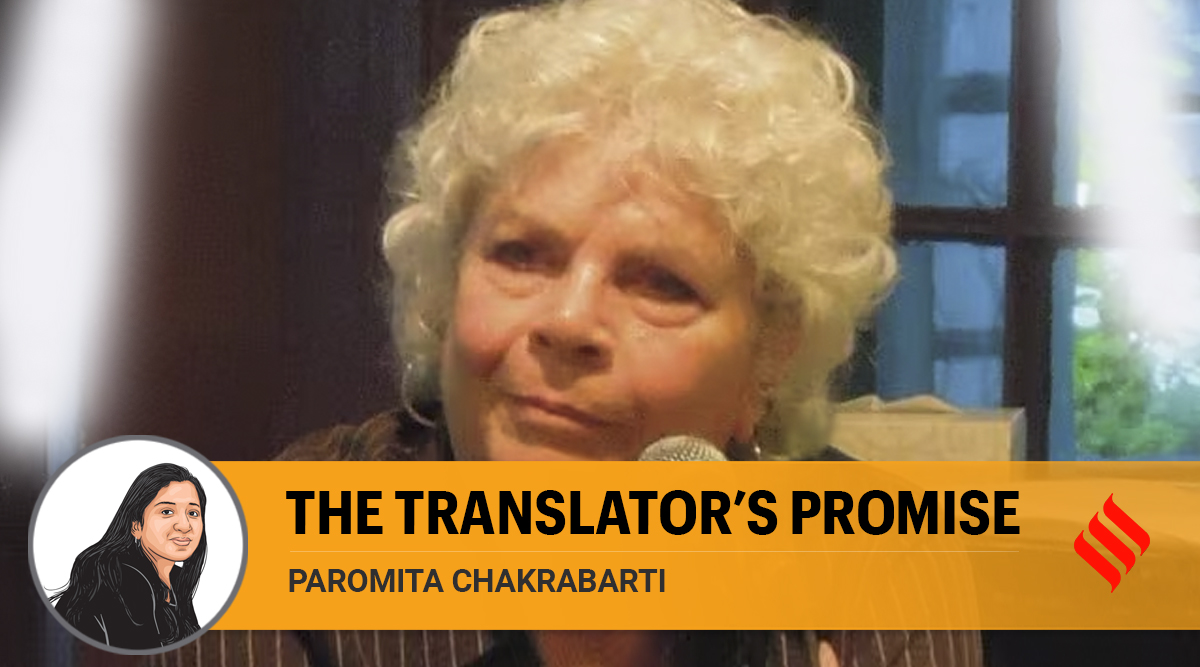In 2021, translator and writer Jennifer L Croft announced on Twitter that she would no longer translate books that do not credit her on the cover along with the writer. Croft had already been at the receiving end of such institutional oversight — her English translation of Polish Nobel laureate Olga Tokarczuk’s 2007 novel Flights, which won the Man Booker International Prize in 2018, had no mention of her on its jacket. But what Croft was really building upon — and giving an impetus of its own — was a movement started by American translator Edith Grossman, who died on September 4, and who had been among the first of her tribe to demand that her labour be acknowledged. As the voice in English of some of Latin America’s most celebrated names — Gabriel Garcia Marquez, Isabel Allende, and Antonio Muñoz Molina, among them — Grossman demanded that her community be recognised for the critical work it does in stitching together languages and cultures in a seamless whole.
Grossman began translating in the 1970s. In the five decades since, while a lot of old battles remain, some things have changed in the translation ecosystem. There is an unprecedented translation boom in the subcontinent, and South Asia, in general; in the West, a crop of indie publishers, some led by translators themselves, are focusing on works in translation. Regional and international literary awards have opened their doors to works in translation. Since its inception in 2018, the JCB Prize for Literature has gone to a work of translation every year except in 2019. There are now mentorship programmes and grants that have come up — in March this year, the University of Chicago, in partnership with the American Literary Translators Association (ALTA), English PEN, Words Without Borders and the British Council, set up South Asian Literature in Translation (Salt) to focus on translation projects from the region; the ALTA has also announced 16 mentorships in 2024, including in Bengali, Hindi, Malayalam, Nepali, Punjabi, Tamil and Urdu.

A crucial turning point in this regeneration was the 2016 International Booker Prize awarded to South Korean writer Han Kang for The Vegetarian, translated into English by Deborah Smith. The latter would go on to set up Tilted Axis Press, dedicated to promoting works in translation, and would be the UK publisher of Geetanjali Shree and Daisy Rockwell’s Tomb of Sand in 2021. Rockwell’s translation of Shree’s Hindi novel Ret Samadhi (2018) would be the first book written in an Indian language to win the International Booker Prize last year. It is also the first novel translated from Hindi to be recognised by the award.
What the success of a work written originally in a vernacular language does is to offer validation and open up doors to commerce. Over the last decade, major publishers in India have expanded their translation list — publishers such as HarperCollins, Penguin Random House and Westland have dedicated imprints to publish works in translation now, including in languages such as Hindi, Urdu, Malayalam, Bengali, Tamil and Kannada.
Globally, translations make for a small segment of the publishing list, especially in the US and the UK; works from South Asian languages are a tiny fraction of that total. In the aftermath of their Booker win, Rockwell, who has been translating authors such as Khadija Mastur, Upendranath Ashk and Krishna Sobti for the last 30 years, was thrilled when Tomb of Sand released outside of India, a first in her career. In India, it went into several print runs following the win.
Most Read 1Chandrayaan-3 mission: Dawn breaks on Moon, all eyes on lander, rover to wake up 2As Indo-Canadian relations sour, anxiety grips Indian students, residents who wish to settle in Canada 3Karan Johar says Sanjay Leela Bhansali did not call him after Rocky Aur Rani: ‘He’s never called me but…’ 4Gadar 2 box office collection day 40: Hit by Shah Rukh Khan’s Jawan onslaught, Sunny Deol movie ends BO run with Rs 45 lakh earning 5Shubh’s tour in India cancelled: Why is the Canada-based singer facing the music?
But away from the concerns of commerce, what of a translation’s inner life? Grossman described the act of translation in the introduction to her 2010 book, Why Translation Matters, as one of empowerment. “Translation asserts the possibility of a coherent, unified experience of literature in the world’s multiplicity of languages. At the same time, translation celebrates the differences among languages and the many varieties of human experience and perception they can express,” she writes.
A literary translator is many things. She is an architect and a world builder, a secret agent ferreting out a text’s subterranean code, a lover on the verge of discovering an exclusive register of intimacy with her partner, where everything and nothing is new.
Also ReadWill reservation really help Indian women?Pratap Bhanu Mehta writes on new Parliament: India’s age of ambitionValues Kota imparted: Anxiety and building a future on a butchered presentWith G20-IMEC plan, the global order shifts to Eurasia
In a country such as India, a translation carries with it a promise of democracy — to go beyond the confines of our own tongues and hear and feel the heady liberation of polyphony in the pockets of India that is Bharat. To be able to listen to the same rhythms of aspiration and hope, discontent and sorrow, and, for a short period of time, to be able to recognise in it, echoes of our own.
paromita.chakrabarti@expressindia.com
© The Indian Express (P) Ltd


